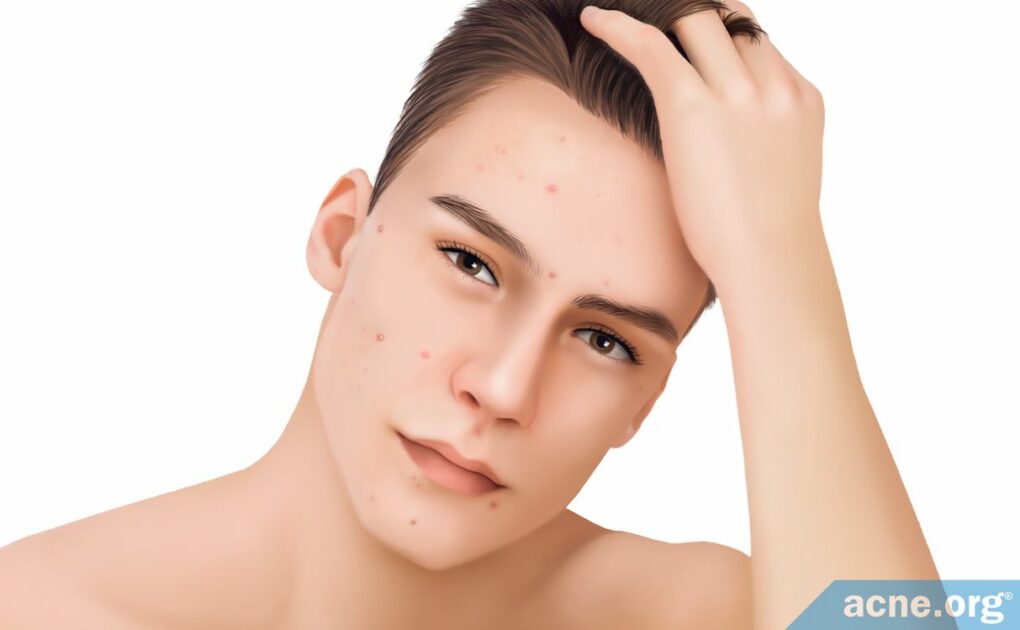Acne May Lower Self-esteem, Especially in Teens and Females

The Essential Info
In both teens and adults, acne may lower self-esteem and can lead to self-consciousness and possibly depression.
Even though acne is a “thing everyone goes through,” the emotional effects of acne are real and serious, particularly for people with more severe cases of acne.
While acne negatively affects both males and females, females are more likely to experience self-esteem problems caused by acne.
And on a positive note, properly treating the skin and clearing acne tends to resolve these issues in anyone.

The Science
- What Is Self-esteem, and Why Does It Matter?
- Acne Negatively Affects Self-esteem
- How Acne Affects Self-esteem More Severely in Women
- Treating Acne Improves Self-esteem
- The Bottom Line
What Is Self-esteem, and Why Does It Matter?
Self-esteem is a person’s subjective opinion of their own worth, or in other words, how much they value and respect themselves.
Self-esteem is an important component of a person’s overall psychological wellbeing. This umbrella term includes other components like emotional health (how well someone manages their moods and emotions), social wellbeing (how comfortable and connected the person feels with other people), and body image (how comfortable and confident someone is in their own body).
Why It Matters: Self-esteem together with other aspects of psychological wellbeing impacts a person’s quality of life or satisfaction with their life. While high self-esteem contributes to a person’s success and quality of life, low self-esteem can make a person feel down and even cause depression. Low self-esteem, and poor psychological wellbeing more generally, potentially leads to serious problems, such as a failure to succeed in school or work.
Acne Negatively Affects Self-esteem
Doctors generally consider acne a minor health problem compared to chronic conditions like asthma, diabetes, or arthritis. However, over the last two decades, researchers have started to recognize that acne can cause serious psychological and emotional effects, as we can see from the following two studies:1-3

A study published in 1999 in the British Journal of Dermatology compared the quality of life among patients with different diseases by giving them questionnaires. The authors of the study wrote: [A]cne patients…reported levels of social, psychological and emotional problems that were as great as those reported by patients with chronic disabling asthma, epilepsy, diabetes, back pain or arthritis.1

Another study, also published in 1999 in the same journal, looked at the psychological and emotional impact of acne on 34 acne patients by giving them questionnaires. The patients’ answers showed that they were emotionally distressed. In fact, 15 of them had clinical anxiety, and 6 suffered from clinical depression. The researchers concluded that doctors need to stop thinking of acne simply as a skin problem, and to start regarding it as a disorder that can damage a person’s emotional state.2
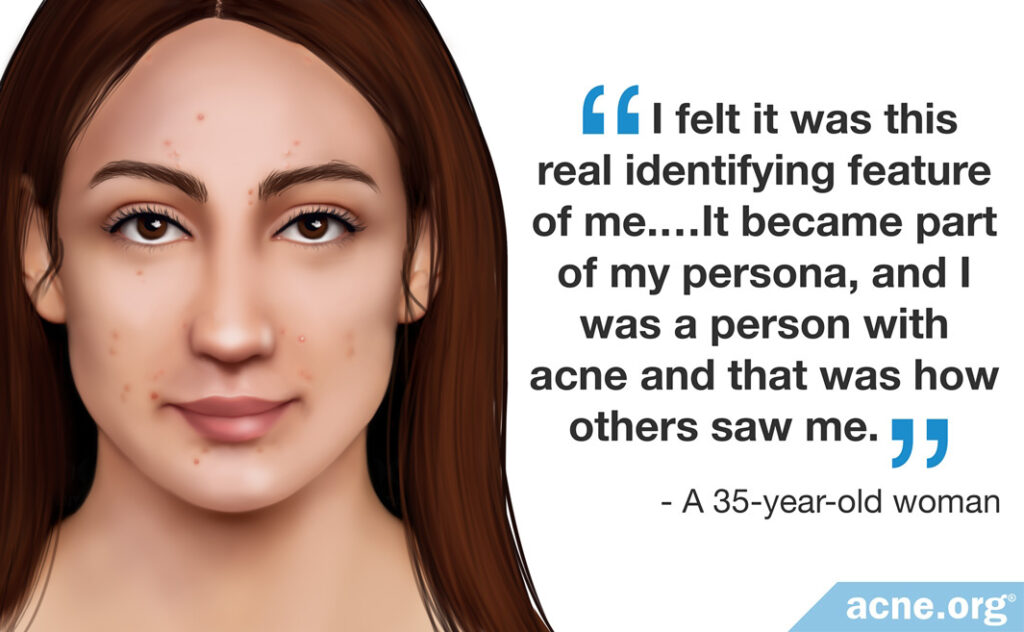
To understand how acne makes people feel about themselves, a group of researchers interviewed 26 acne patients. Quotes from the interviews were published in 2006 in the journal Canadian Family Physician. The patients were between the ages of 13 and 72 years and spoke about the impact of acne on their self-esteem.4
Below are some of the patients’ comments:
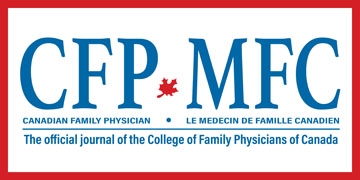
You become very focused on the acne. It’s the first thing you see when you look in the mirror, instead of the rest of you. -A 10-year-old girl
I felt it was this real identifying feature of me.…It became part of my persona, and I was a person with acne and that was how others saw me. -A 35-year-old woman
It’s low self-esteem, and your confidence is lacking. You do tend to feel pretty down in your life, and it’s hard to search for things to make you feel good and confident about yourself. -A 32-year-old woman
I guess [acne] made me feel that I was less than acceptable, [that] I wasn’t worthy, that I was cursed. -A 41-year-old man
When I had my acne [badly], I felt quite embarrassed about it, um, at the time, and, ah, it was something that occupied my mind a lot. -A 19-year-old man
It was just embarrassing trying to talk to people and you’ve got pimples and people are looking at you and you are trying to hide [the acne] as well. It makes you feel embarrassed. -A 32-year-old woman
[If] my face was in a bad state, then I was cautious when I was going out … just that you’re aware of [the acne] when you go out and, you know, you don’t want to draw any attention to yourself because of the condition you’re in. -A 15-year-old boy4
However, since this study was based only on interviews with individual acne patients, it does not provide an idea of how acne patients compare to other people in terms of self-esteem.
Comparing Self-esteem in People With and Without Acne
Two groups of researchers, 5 years apart, conducted a review of the available evidence on self-esteem in people with and without acne. The first group concluded that people with acne, regardless of age, do tend to have lower self-esteem than people without acne.5 However, the second group came to the conclusion that self-esteem may be about the same in people with and without acne, but people with acne do seem to have more stress, anxiety, and depression.6
Expand to read details of research

In 2017, researchers combed through 13 studies conducted in 11 countries on the impact of acne on self-esteem. They published their conclusions in the International Journal of Women’s Dermatology. The researchers concluded that people with acne tend to have lower self-esteem than people without acne. They also concluded that self-esteem suffers more in people with severe acne.5
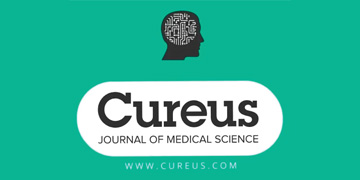
In 2023, a second group of researchers conducted another review of the evidence and published their findings in the journal Cureus. This was a so-called meta-analysis, which means that the researchers looked at many scientific studies and crunched the numbers from all of them to come up with an overall conclusion. In this case, the researchers analyzed 23 studies on the psychological impacts of acne. They concluded that when it comes to self-esteem, people with acne may be no different from people without acne. However, the researchers did find that people with acne suffered from more stress, anxiety, and depression than people without acne.6
Part of the reason the 2 reviews above have come to contradictory conclusions regarding the impacts of acne on self-esteem may be because they included different studies that looked at different groups of people. Some research suggests that age and gender plays a role in whether acne lowers self-esteem, and by how much. Let’s have a look at that information.
Acne May Impact Self-esteem More in Teens than in Adults
One 2022 study looked at self-esteem in teens and adults with acne. The researchers concluded that while both teens and adults may suffer from low self-esteem due to acne, people under the age of 20 were more likely to experience severe problems with self-esteem and body satisfaction compared to older people.7
How this might explain the contradictory conclusions of the 2 reviews: The first review may have included studies that featured a larger proportion of teens, while the second review may have looked at studies with a larger percentage of adults.
Acne Affects Self-esteem More Severely in Women
Even though having acne is apt to damage everyone’s self-esteem, it appears to affect women more strongly.
According to a study published in 2009, women with acne are more self-conscious than men with acne, especially when it comes to acne on the face.8
Another study found that acne, particularly severe acne, lowers women’s sexual self-esteem – in other words, their confidence in and satisfaction with their sexuality.9
How this might explain the contradictory conclusions of the 2 reviews: Perhaps the studies included in the first review featured a larger percentage of women than those in the second review. In that case, it would make sense that the first review would find a larger impact of acne on self-esteem.
Treating Acne Improves Psychological Wellbeing
The good news is that clearing up the skin will improve psychological wellbeing.
We know this based on studies that have been performed on people taking isotretinoin (Accutane). Isotretinoin is a powerful yet controversial acne treatment approved for people with severe acne that dramatically clears the skin, but can also come with severe and potentially lifelong side effects. However, even though the available research focuses primarily on isotretinoin, common sense tells us that any successful method that is used to clear up one’s skin will result in improved emotional wellbeing.
One study published in 2014 surveyed 98 patients with acne before and after isotretinoin treatment. The researchers asked the patients about their quality of life, which included the patients’ ability to enjoy social activities and relationships, their embarrassment about their acne, and other factors that are closely related to self-esteem. The study found that the patients’ quality of life improved dramatically after acne treatment.10
Expand to read details of study

A study published in 2014 in the Iranian Journal of Psychiatry looked at 98 patients with severe acne who were treated with oral isotretinoin (Accutane) for 16 weeks. The patients included 60 women and 38 men. Before and after the treatment, the patients completed a questionnaire about their quality of life which included questions about how acne affected their level of embarrassment, close relationships, sex, social and leisure activities, study or work, and other aspects of their daily lives.10 Based on each person’s answers, he or she was given a quality of life score, which can be interpreted as follows:
- 0 – 1: Acne had no effect on the patient’s life
- 2 – 5: Acne had a small effect on the patient’s life
- 6 – 10: Acne had a moderate effect on the patient’s life
- 11 – 20: Acne had a very large effect on the patient’s life
- 21 – 30: Acne had an extremely large effect on the patient’s life
The researchers compared the patients’ scores before and after acne treatment and found that the scores decreased dramatically after treatment for both men and women. It should be noted that the researchers did not look specifically at self-esteem. Rather, self-esteem was only part of what contributed to each person’s quality of life.10
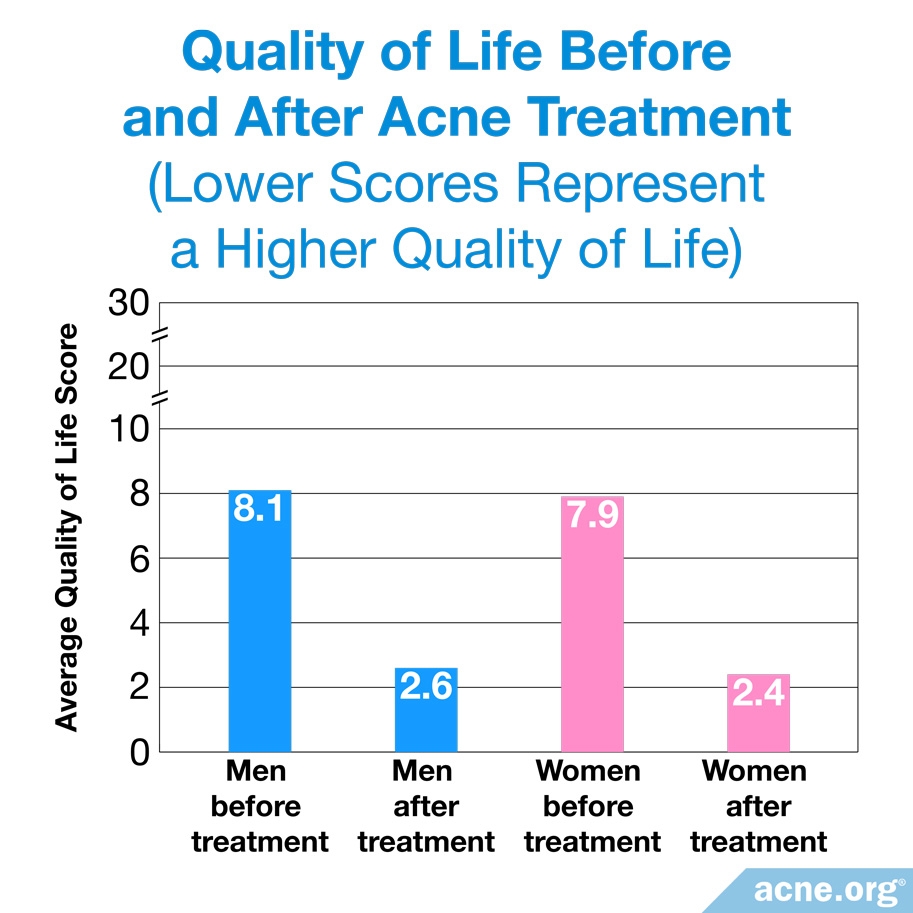

An older study, published in 1987 in the Journal of the American Academy of Dermatology, also looked at whether treating acne reduces emotional problems. The researchers once again studied the effect of isotretinoin treatment on 72 patients with cystic acne. They found that treatment continued improving the patients’ anxiety and depression as their acne subsided.11 Again, however, this study did not look directly at self-esteem.
A more recent study from 2021 did look specifically at patients’ self-esteem before and after undergoing a 6-month course of combined oral and topical treatment for moderate-to-severe acne. The researchers found that the treatment improved the patients’ self-esteem as well as their quality of life, and decreased the degree to which acne interfered with their life.12
Expand to read details of study

A study published in 2021 in the International Journal of Women’s Dermatology looked at 62 patients with moderate-to-severe acne who completed a 6-month course of treatment combining an oral medication like isotretinoin or antibiotics with a topical treatment regimen. The patients filled out 3 questionnaires regarding their self-esteem, quality of life, and degree of disability caused by acne before and after the course of treatment.
Comparing the patients’ scores on these 3 questionnaires before and after the course of acne treatment, the researchers found that:
- Self-esteem scores rose by an average of 2–4 points out of 30, depending on the specific treatment. Increased scores suggest improved self-esteem.
- Quality of life scores decreased by about 4 points out of 30. Lower scores suggest a higher quality of life that is less hampered by acne.
- Disability scores also decreased by about 4 points out of 15. Lower disability scores indicate a lower degree of disability caused by acne.
Taken together, these measures show that 6 months of combined oral and topical treatment improved the self-esteem and psychological well-being of people with moderate-to-severe acne.12
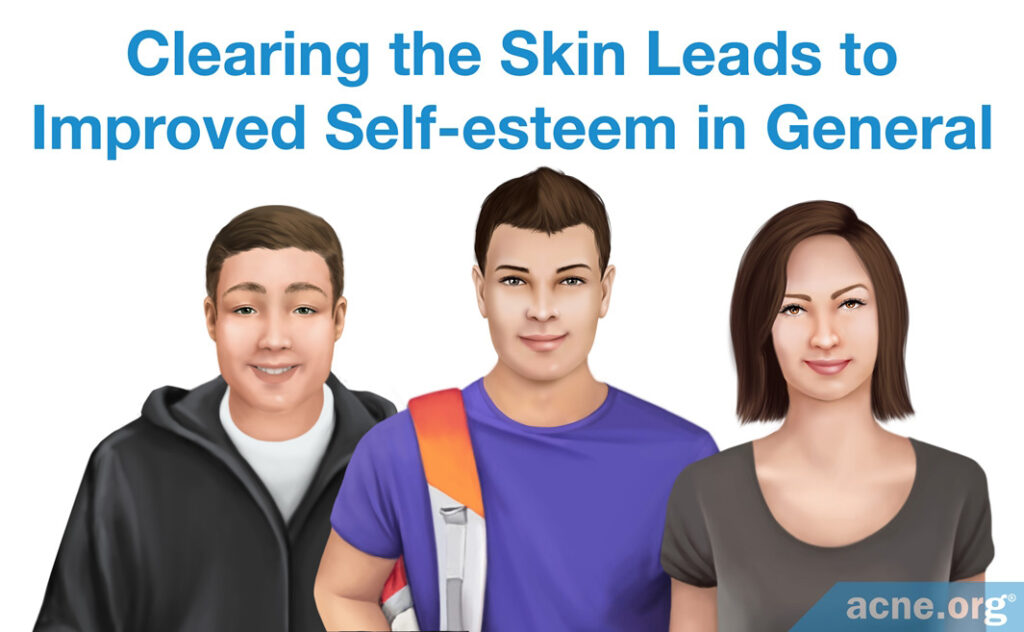
The Bottom Line
There are few surprises here. As one would expect, acne tends to worsen psychological wellbeing and may lower self-esteem. Although females are more likely to suffer low self-esteem due to acne, clearing the skin leads to improved emotional wellbeing in people of all ages and genders.
References
- Mallon, E. et al. The quality of life in acne: a comparison with general medical conditions using generic questionnaires. Br. J. Dermatol. 140, 672 – 676 (1999). https://www.ncbi.nlm.nih.gov/pubmed/10233319
- Kellett, S. C. & Gawkrodger, D. J. The psychological and emotional impact of acne and the effect of treatment with isotretinoin. Br. J. Dermatol. 140, 273 – 282 (1999). https://www.ncbi.nlm.nih.gov/pubmed/10233222
- Tan, J. K. Psychosocial impact of acne vulgaris: evaluating the evidence. Skin. Ther. Lett. 9, 1 – 3 (2004). https://www.ncbi.nlm.nih.gov/pubmed/15334275
- Magin, P., Adams, J., Heading, G., Pond, D. & Smith, W. Psychological sequelae of acne vulgaris: results of a qualitative study. Can. Fam. Physician 52, 978 – 979 (2006). https://www.ncbi.nlm.nih.gov/pubmed/17273501
- Gallitano, S. M. & Berson, D. S. How acne bumps cause the blues: The influence of acne vulgaris on self-esteem. Int. J. Womens Dermatol. 4, 12-17 (2017). https://www.ncbi.nlm.nih.gov/pubmed/30023422
- Almutawa, Y. M., Bhattarai, E., AlGhareeb, M. & Zhao, J. Evaluation of psychiatric comorbidities and quality of life as well as brain-derived neurotrophic factor (BDNF) concentrations among patients suffering from acne vulgaris: A systematic review and meta-analysis. Cureus 15, e33357 (2023). https://pubmed.ncbi.nlm.nih.gov/36751189/
- Özkesici, K. B. Comparison of the psychosocial impact of acne in adolescents and adults; body satisfaction, self-esteem, and quality of life. J. Cosmet. Dermatol. 21, 836-843 (2022). https://pubmed.ncbi.nlm.nih.gov/33844401/
- Hassan, J., Grogan, S., Clark-Carter, D., Richards, H. & Yates, V. M. The individual health burden of acne: appearance-related distress in male and female adolescents and adults with back, chest and facial acne. J. Health Psychol. 14, 1105 – 1118 (2009). https://www.ncbi.nlm.nih.gov/pubmed/19858331
- Beisert, M & Pilarczyk, K., Zakrzewska, M. & Pawlaczyk, M. Sexual satisfaction and self-esteem in women with acne. J. Cosmet. Dermatol. Nov 6 (2019). doi: 10.1111/jocd.13207. [Epub ahead of print]. https://www.ncbi.nlm.nih.gov/pubmed/31692193
- Fakour, Y. et al. The effect of isotretinoin (Roaccutane) therapy on depression and quality of life of patients with severe acne. Iran J. Psychiatry 9, 237 – 240 (2014). https://www.ncbi.nlm.nih.gov/pubmed/25792992
- Rubinow, D. R., Peck, G. L., Squillace, K. M. & Gantt, G. G. Reduced anxiety and depression in cystic acne patients after successful treatment with oral isotretinoin. J. Am. Acad. Dermatol. 17, 25 – 32 (1987). https://www.ncbi.nlm.nih.gov/pubmed/2956296
- Kaikati, J., Zoghaib, S., Kechichian, E., Stephan, F., Helou, J., Sleilaty, G. & Tomb, R. The impact of acne treatment on quality of life and self-esteem: A prospective cohort study from Lebanon. Int. J. Womens Dermatol. 7, 415-421 (2021). https://pubmed.ncbi.nlm.nih.gov/34621953/
 Acne.org Products
Acne.org Products